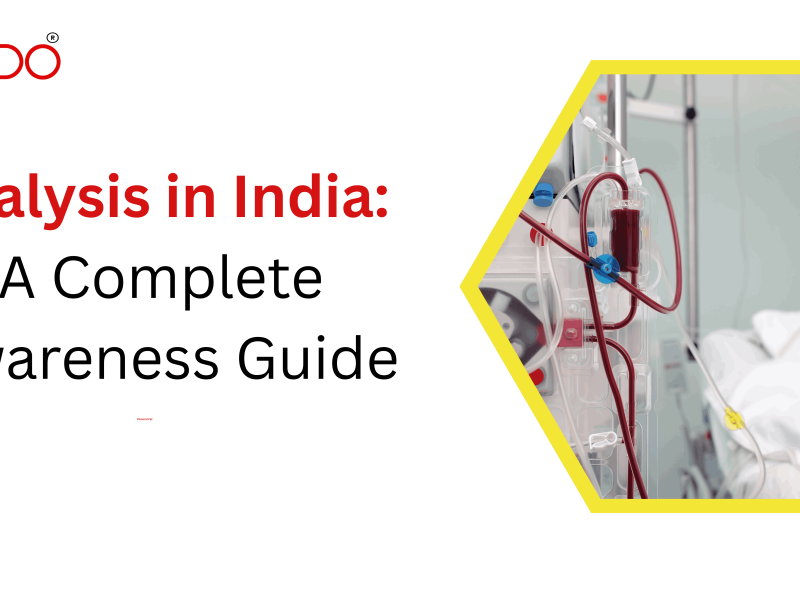Smoking is one of the leading causes of preventable death and disease across the globe. While many are aware of its link to cancer and heart disease, fewer understand the silent yet progressive damage smoking causes to lung function. For smokers—past or present—Pulmonary Function Tests (PFTs) are an essential tool to monitor and protect their respiratory health.
At VMEDO, we aim to bring accessible and preventive healthcare to every doorstep. In this blog, we highlight why regular lung function tests are crucial for smokers and how early detection can make all the difference.
What Are Pulmonary Function Tests (PFTs)?
Pulmonary Function Tests (PFTs) are a group of non-invasive tests that measure how well your lungs are working. They help determine:
-
How much air your lungs can hold (lung capacity)
-
How fast you can breathe air in and out (airflow)
-
How efficiently your lungs transfer oxygen into your blood (gas exchange)
Common Types of PFTs
-
Spirometry – Measures how much air you can inhale and exhale, and how quickly you do so.
-
Lung Volume Measurement – Assesses the total capacity of the lungs.
-
Diffusion Capacity Test (DLCO) – Evaluates how well oxygen moves from the lungs to the bloodstream.
These tests are quick, painless, and can provide early warning signs of lung disease—even before symptoms appear.
Smoking and Lung Health: The Unseen Damage
1. Chronic Inflammation and Airway Obstruction
Smoking irritates and inflames the airways, leading to chronic bronchitis and narrowing of the air passages. Over time, this reduces airflow and makes breathing difficult.
2. Alveolar Damage and Emphysema
The alveoli—tiny air sacs in the lungs responsible for oxygen exchange—can get destroyed due to prolonged smoking. This leads to emphysema, where lungs lose their elasticity, causing breathlessness and fatigue.
3. Progression to COPD
Most chronic smokers are at risk of Chronic Obstructive Pulmonary Disease (COPD). COPD is irreversible but manageable if diagnosed early. Unfortunately, many smokers don’t realize they have it until it’s quite advanced.
Why Should Smokers Get Regular PFTs?
1. Early Detection of Lung Disease
Many lung conditions, including COPD, emphysema, and chronic bronchitis, start silently. By the time symptoms like breathlessness or persistent cough appear, significant lung damage may have already occurred.
PFTs can detect early changes in lung function, prompting timely intervention.
2. Assessing the Impact of Smoking
Regular PFTs allow smokers to quantify the damage smoking has caused to their lungs. This not only helps in understanding the current health status but can also be a powerful motivator to quit smoking.
3. Monitoring for Disease Progression
For those who have already developed respiratory issues, routine lung function tests are crucial to monitor the progression of disease and adjust treatment accordingly.
4. Guiding Treatment and Management
Pulmonologists use PFT results to:
-
Decide on medication (bronchodilators, steroids, etc.)
-
Recommend pulmonary rehabilitation
-
Suggest lifestyle changes
-
Determine if oxygen therapy is needed
5. Evaluating Recovery Post Smoking Cessation
After quitting, lung function can improve, though it may not fully return to normal. PFTs help track this recovery, giving both the patient and the doctor measurable insights into health improvements.
When Should Smokers Get a PFT?
Smokers should consider getting their first lung function test as early as possible, especially if they have:
-
Been smoking for more than 5 years
-
A history of heavy smoking (10+ cigarettes/day)
-
Persistent cough, wheezing, or breathlessness
-
A family history of asthma or COPD
-
Difficulty performing physical activity without breathlessness
After the initial test, follow-up frequency may be:
-
Annually, for moderate to heavy smokers
-
Every 6 months, for those with early-stage lung disease or symptoms
-
As advised by a pulmonologist, for those with diagnosed respiratory conditions.
Benefits of Regular Lung Function Testing
Prevention-Oriented Care
Early identification of lung impairment gives you a chance to act before it’s too late.
Improved Quality of Life
Proper treatment plans based on PFT results can help patients breathe better, stay active, and reduce hospital visits.
Cost Savings
Detecting lung issues early can prevent costly complications like respiratory failure, oxygen dependence, and hospitalization.
Support Smoking Cessation
Measuring lung capacity and seeing the improvement after quitting can be a powerful encouragement to remain smoke-free.
Debunking Myths About Lung Tests for Smokers
I don’t have symptoms, so I don’t need a test.
Truth: By the time you notice symptoms, damage may already be extensive. PFTs detect issues before symptoms begin.
I’m too young to worry about my lungs.
Truth: Lung function begins declining in the 30s, especially in smokers. Early testing is preventive.
It’s too late for me, I’ve been smoking for decades.
Truth: It’s never too late. Regular monitoring can slow disease progression and improve your quality of life.
Quitting Smoking? PFTs Can Track Your Progress
Even if you’ve recently quit smoking, regular PFTs can show you:
-
How much your lung function has improved
-
What areas still need attention
-
Whether you’re regaining breathing capacity
-
How effective your rehabilitation is
What to Expect During a Lung Function Test?
At VMEDO or at home, here’s what a standard PFT involves:
-
You will be asked to breathe into a device called a spirometer.
-
You may need to inhale deeply and exhale forcefully several times.
-
The process takes around 30–45 minutes.
-
No needles, no pain—just breathing.
-
Your results will be reviewed by a pulmonologist or respiratory specialist.
Preparation tips:
-
Avoid smoking 1 hour before the test
-
Don’t eat a heavy meal
-
Wear loose-fitting clothes
-
Inform the technician about any medications you’re on
Conclusion:
Smoking may have been a part of your past—or even your present—but it doesn’t have to dictate your future. Your lungs work tirelessly to supply oxygen to every part of your body, and yet they are often the most overlooked when it comes to preventive care. Regular Pulmonary Function Tests (PFTs) act as a window into your respiratory health, helping you catch early signs of trouble, track changes, and take control before things spiral out of hand.
Whether you’re an active smoker, an ex-smoker, or someone exposed to secondhand smoke, getting a PFT is one of the smartest decisions you can make for your health. It’s simple, non-invasive, and could help prevent chronic conditions like COPD, asthma, or even lung cancer from silently progressing.



